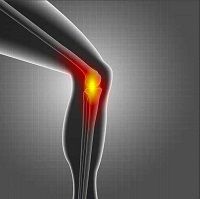Diabetes: Metabolic Changes, Not Just Weight Gain, Lead to Osteoarthritis
Being overweight worsens osteoarthritis and diabetics often have extra weight. But a new study found that it is not weight alone that puts these patients at risk of the joint ailment.

Being overweight is a common trait in people with type 2 diabetes and has been blamed for the tendency of these patients to develop osteoarthritis (OA).
A French research team has found a stronger correlation between the two ailments.
The link between type 2 diabetes and the increased risk of osteoarthritis was first described in the early 1960s, but a December 2016 review of research data sets by Alice Courties, MD, and Jérémie Sellam (MD, PhD), from the rheumatology department of the Saint-Antoine Hospital in Paris, France, reveals an even stronger link between type 2 diabetes and OA that is independent of weight (or BMI) as a confounding factor. The meta-analysis looks at the effects of metabolic disturbances on OA, and posits the existence of a diabetes-induced form of OA as a subset, or "sub-phenotype" of metabolic OA.
Although there is certainly a mechanical impact on the joints of many individuals with type 2 diabetes as a result of obesity, the data Courties and Sellam interpret supports that the connection between OA and obesity cannot explain all factors of OA development in individuals with type 2 diabetes. The joint ailment OA is characterized by osteophytes, synovial inflammation, cartilage degradation, and bone sclerosis, all of which are exacerbated by the "systemic metabolic disturbances and low-grade inflammation" associated with hyperglycemia and insulin resistance in individuals with Type 2 diabetes. Courties and Sellam remark that elevated fasting glucose concentration has also been associated with bone marrow lesions which, they said, are known to predict OA structural damages." In diabetic patients there is an added risk in the loss of subcondral bone through lower bone mineral density and higher porosity.
Additionally, high-glucose exposure causes a decrease in the production of collagen II and an increase in overall inflammation. The pro-inflammatory and pro-degradative effects of collagen II loss are compounded by an increase in advanced end glycation products (AGEs) which, according to Courties and Sellam, are "known to accumulate in cells and tissues under high glucose concentration" and "with age in [OA] cartilage, modifying its mechanical properties."
Insulin resistance also plays a factor in joint damage, via an increase in free fatty acids that cause inflammation. There is also an increase in fibroblast like-synoviocytes (FLS) in OA which can be effectively treated with insulin, but the response is blunted in diabetic patients because of their "insulin resistant state" making the condition difficult to treat. The FLS in diabetics can result in an overproduction of the cell-signaling protein TNF which induces even more systematic inflammation.
Courties and Sellam conclude that "epidemiological association between OA and type 2 diabetes is robust, beyond their common association with age or obesity" and their extensive study examines the metabolic causes for those additional OA risk factors for individuals with Type 2 diabetes. They suggest that additional research may be required to determine to what degree diabetes control and prevention may moderate OA risk, and influence treatment of this chronic joint disease.
The article "Osteoarthritis and type 2 diabetes mellitus: what are the links?" was published in the December 2016 issue of Diabetes Research and Clinical Practice.
Related Coverage:
Diabetes May Be an Osteoarthritis Risk Factor
Obesity: A 'Super-size" Problem